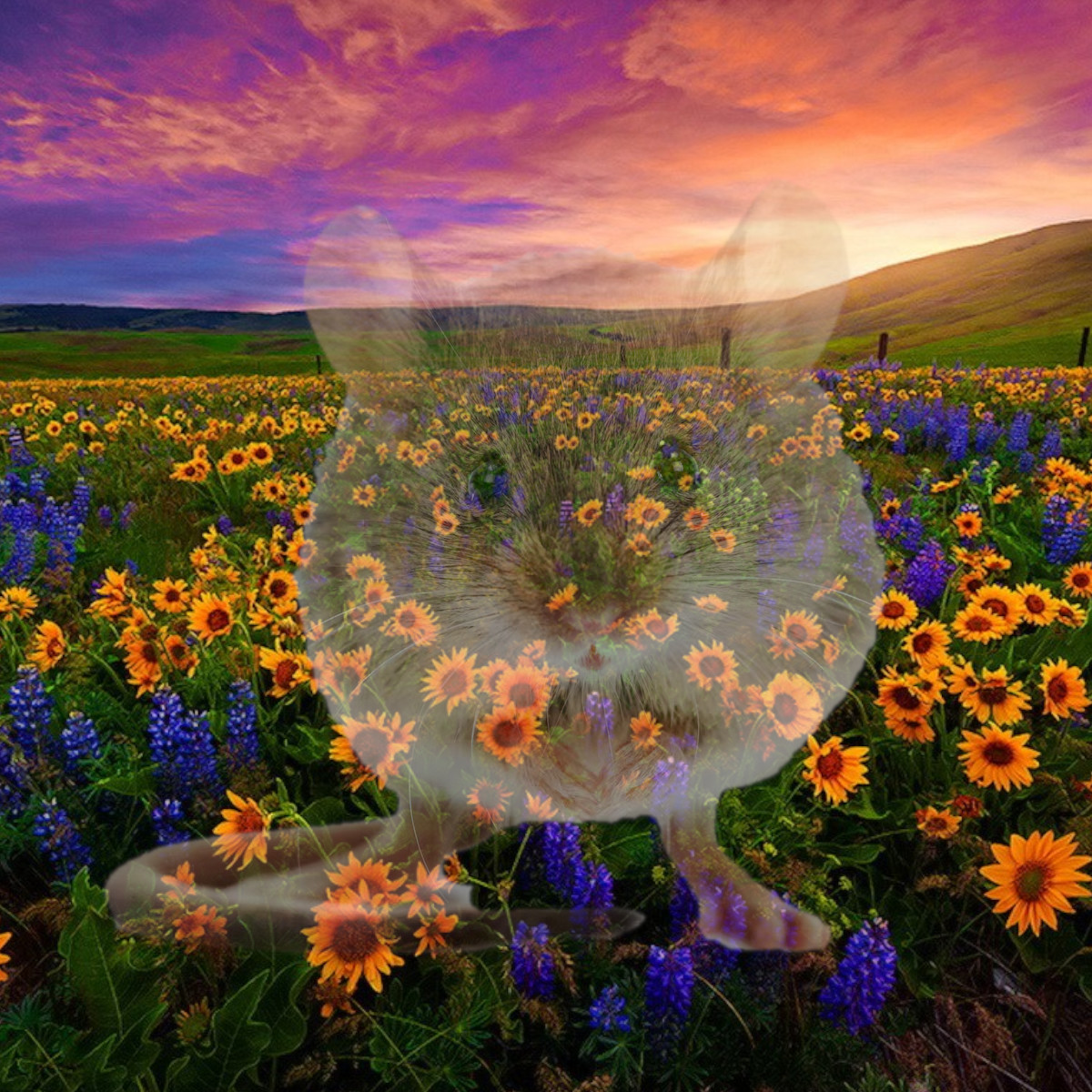you are loved and deserve happiness
Oh, I have two good ones:
-
Nuclear power causes less deaths (per energy unit produced) than wind (source)
-
You get less radiation when living near a nuclear power plant, than if that nuclear plant hadn’t been there.
To explain the second: A major misconception is, that nuclear power plants are dangerous due to their radiation. No they aren’t. The effect of radiation from the rocks in the ground and the surroundings is on average 50x more than what you get from the nuclear power plant and it’s fuel cells. (source). Our body is very well capable of dealing with the constant background radiation all the time (e.g. DNA repairs). Near a power plant, the massive amounts of isolation and concrete will inhibit any background radiation coming from rocks from that direction to you. This means, that you’ll actually get slightly less radiation, because the nuclear plant is there.
To this day, it’s been very hard to find out, if at all any people have even died to Fukushima radiation (ans not other sources such as tsunami/earthquake/etc.)
Truly no offense, but this is sort of burying the lede on Nuclear Power risks. Mathmatically coal releases more radiation - no question. It’s also hard to pin down how many died due to Fukushima for ver good reasons: Correlation might be easy, but determining cause is ultra tough and no right-minded scientist would say it without overwhelming evidence (like they had something “hot” that fell on their roof and didn’t know it for a long time). Also? They aren’t dead yet. So we look to statistical life span models crossing multiple factors (proximity, time of exposure, contaminated environments and try to pin down cancer clusters attributable, and people can live for decades, etc…
The problem is that people rightly are concerned that in both Fukushima and Chernobyl (and 3 Mile for that matter) unforseen circumstances could have been catastrophically worse. You blow up a coal plant? You expose a region locally to it and it’s probably “meh”. You blow up a nuclear plant, and you get melt down corium hitting ground water or sea water with direct exposure to fissioning material and all the sudden you have entire nations at risk for subsequent spewing of hot material that will contaminate food supplies, water resevoirs, and linger on surfaces and be pulled into our lungs once it’s in the dirt. Radioactive matieral is FAR more dangerous inside the body when you eat plants and animals that are exposed and pull it from the ground. Even cleaning down every surface, eventually you’ll get some of it airborn to be breathed into our lungs again with wind storms, flooding and other natural erosion. The consequences are exponentially higher with Nuclear accidents and ignoring that is whitewashing. And that’s not even getting into contamination from fuel enrichment, cooling ponds/pools leaking water, or the fact that it will take 30-40 years to clean up Fukushima (and they aren’t sure how exactly that will happen and there could be another tsunami). Probably hundreds to try to clean up and contain Chernobyl - and given the current state of affairs we may find out even worse.
BTW, I’m pro-nuclear. Thorium salts seem a good way to go and we probably would already have these if not for the nuclear arms race making nations hungry for plutonium. Please don’t short sell everyone’s intelligence because you can claim “only” a handful of people died due to Fukushima. Direct death is only one facet. Lives were disrupted (and displaced) and for a while there, the impacts spread to the US across the Pacific and there were discussions of evacuating like 1/3 of Japan’s population outside an exclusion zone. You can be pro nuclear while still acknowledging that some fears are real and well founded, and unfortunately the industry has proven gaps in safety that make it harder and harder to argue when we have Solar and Wind and rapidly ramping power storage. Nuclear is likely to simply be outcompeted over time (just like Coal and NG).
Iv read about Thorium the last 3-4 years and it seems so promising. Im really disapointed that the push is not greater as it would make everything a lot more safe.
Additional fun fact. There has been a lot of research and activity dedicated to potentially switch coal power plants to nuclear. Currently, they cannot do it, because the coal plants and all the equipment associated produces far more radiation than regulations allow a nuclear plant to emit.
Therefore, unless they could find a practical way to decontaminate the radiation away from existing coal equipment, or regulations change for transformed plants, they can’t do it.
Did you know, the Nuclear Regulatory Commission’s only mandate is to ensure the safety of nuclear power, not to promote its implementation. Many regulatory bodies have a dual mandate to stop them from just shutting down what they’re supposed to regulate.
Can’t be unsafe if it doesn’t exist lol
What are you trying to say by linking this article?
I mean, it even says that it was a mechanical issue - and the radiation danger was low. And even then, it’s just a single person. Looking at the bigger picture, the numbers game favors nuclear+wind+solar over fossile.
Just found it coincidental that today someone died from radiation at a nuclear power plant. It does not happen that often.
Not just that, but you might get less radiation swimming in the pool where spent nuclear fuel rods are stored than outdoors.
Haha, that’s a nice explanation
Nuclear power is actually the cleanest way to produce energy. The waste from replacing solar panels and windmills (which have a service life only three to five years) is actually more of a problem than the waste from spent fuel rods. Plus environmental impacts from fuel rod production are less than solar panel and windmill production. The problem with nuclear energy happens when things go wrong. It would have to be absolutely accident free. It never has been and never will be.
Though they’re on the right track with nuclear power. Fusion would be ideal, runs on seawater (fuses deuterium/tritium) and if there’s a problem you simply shut off the fuel. Problem is insurmountable engineering issues, we just don’t have tech for it yet (need anti-gravity). They’ve been working on it for many decades and progress has been painfully slow.
Windmills last much longer than five years. They generally last 20-25. Wherever you heard that bullshit number from, ignore all the other info you got from them.
Not only windmills, but also every for of alternative energy production.
Wind turbines do not have a service life of 3 to 5 years. Where did you hear that?
Even when things go wrong, it’s not as bad as with the other classic fossile energy sources. Exactly this calculation is included in the world in data source on deaths per kWh which I linked.
When we have car accidents normalised, massive climate change, air pollution from fossile fuels, then even the occasional nuclear accident isn’t really a problem.
The problem is, that these accidents get much more attention than they deserve given how many deaths are caused by fossile fuels. When calibrating for deaths, fossile fuels should get around 100x the attention
-
Oxford University is older than the Aztec empire.
Oxford University founded in 1326, Aztec empire ~1428-1521
Don’t mean to pick, but Oxford was founded in 1096 and Cambridge in 1209.
I worked for cambridge in 2009 and got a nice little 800 year badge
Thats 900 years dumbass
Edit: you got epic trolled by summzashi!!!
That edit is the saddest part about this
I felt like I was transported back to mid-2000s internet when I read that. Le epic troll.
Why are you so rude?
2009-1209=800 Big oof there
You really need to be nicer to people here or you will probably get banned by someone sooner or later. People are trying to get away from the reddit atmosphere here. Don’t act all superior because you spotted a mistake. That’s really childish.
Dude, delete it and try to forget, nobody is buying your excuse. You called someone dumb for making a mistake, despite it being you who made the error while OP was bang right.
It’s very embarrassing mate, you can try to style it out all you want and a couple 10 yr olds might buy it but not much more than that.
Personally I think you’d do best deleting the comment and trying to forget that you were just that stupid once upon a time :) x
Removed by mod
You got epic trolled my dude!
You’re really embodying the saying “Never play chess with a pigeon.”
Much delirium, such humourz.
I’m guessing that about fits with your level :) x
u mad?
Apoplectic mate.
That, or just amused at your steadfast position that you actually intended the primary school level mistake :) x
Fucking idiot. Can’t do math but quick to jump on the chance to try to correct someone.
Who’s dumbass now?
Removed by mod
unfunny sthu
And some of the colleges of Oxford University are older than the university. Merton College was founded in 1264.
Wait, you’re saying that the Aztec empire was just 64 years old when Columbus discovered America and ships with conquistadors followed to butcher and enslave everyone?
Yeah, I’ve heard similar things in the past and I’m always confused by it.
There were people there prior to the Aztec empire conquering them. The Aztec empire is just a specific government that ruled the area at that specific time.
The Napoleonic empire, for comparison, only lasted 1804-1815 (with a hole in the middle).
The 1st donut empire
My local pub is older than the USA.
As an American who lived in England for a couple years, that always just fascinated me. Some places just legit felt like I’ve stepped back in time.
Cleopatra lived closer in time to us than the construction on the great pyramids.
The closest planet to Earth is Mercury.
On average that is. Mercury is actually the closest planet to every other planet in average. Because when it’s on the other side of the Sun, it’s still pretty close.
Lighters were invented before matches! 1823 vs 1826
So why did anyone use matches then? Was it just more economically viable?
If you’ve ever played around with an old-style lighter (think classic Zippo) you’d get it! They’re fairly expensive, and aren’t airtight so they need to be refilled every few days/weeks. If you fill them too much they need to be kept upright or they’ll spill lighter fluid on you. Super cool and can hold flames for a while but not nearly as conventient as a matchbook for quick fire lighting
It just occurred to me that zippos are basically the same type of oil lanterns that we’ve been using for thousands of years
Although, if you use them a lot (like, a couple packs a day “a lot”), you get good at filling them the right amount, and it’s just something you do.
Zippos are pretty fantastic for cigarette smokers. They’re horrible for someone who just want to carry fire around in their pocket “just in case.”
Back when I was smoking I got a Zippo because it was cool. Refilling fuel and replacing flints got old, but the taste of gas in your mouth was just the worst.
Every weed smoker had a zippo they didn’t use because it tasted so bad. They’re fidget toys more than anything. And the “windproof” feature doesn’t work all that well compared to a bic lighter. Who cares if it keeps a tiny flame alive if it’s not going to ignite anything else. You have to shelter it anyway.
The world is running out of sand.
It’s one of the most used materials in the world for construction but islands are disappearing because of its limited supply.
Oh no. For some reason I thought we were manufacturing the sand used in construction and stuff. At what point do we stop stealing it and start making it? Is that actually any better?
Isn’t one of the issues that the sand in the deserts isn’t the right kind?
Yes, sand in the desert and beaches is “too old”, in other words, it’s too smooth and can’t hold material together. That’s why Dubai is importing huge amounts of sand while being literally a city in the desert.
Dubai needs to stop it.
So all we need to do to increase our supply is to rough up some sand?
Some companies came up with an alternative by grounding cement blocks into cement sand instead.
Got it. I’ll just make me some concrete… Alright I need
- Cement mix
- Pebbles
- Sand… oh shit.
Removed by mod
Nice one. lol
On a more serious note, they can find cement from smashed buildings. Destroying old rundown hotels to develop something else. Cool, some one wanna buy those debris and put them to some good use.
How do you make sand lol.
Put rocks through the “coarse” setting on your coffee grinder.
I just chew dried pasta.
Removed by mod
That made my teeth hurt.
Same way nature does, grind up bigger rocks
Why not just use the rocks themselves then
Because they’re not sand, silly!
Removed by mod
deleted by creator
By rubbing sandpaper…duh
Shells, coral, and a whole lot of time.
Good. I hate sand.
Ani?
I heard that in the high pitched voice of Jar Jar Binks
So Water world had it right apparently
Are you saying we should put dibs on Sahara property?
A day on Venus is longer than a year on Venus.
If you start to think about how these lengths of time are defined it becomes clearer.
1 day = time to rotate on it’s axis once 1 year = time to complete a full rotation around the sun
For Earth, it takes us ~24hrs to rotate on our axis and 365.25 days to orbit the sun.
However, because Venus’ axial rotation is so slow (and another interesting fact, it rotates in the opposite direction to other planets) it actually completes a full orbit of the sun before 1 axial rotation.
Hence, a year is shorter than a day
For those interested:
1 Venus day = 243 earth days 1 Venus year = 225 earth days
Cleopatra was born closer to the invention of cellphones than the building of the pyramids
All the planets in the solar system can fit in the space between the Earth and the Moon
General Motors, Firestone Tire, Standard Oil, and Phillips Petroleum were convicted of an actual conspiracy related to the monopolization of transit systems, which replaced beloved streetcar (rail) systems with rubber-tired oil-burning buses.
https://en.wikipedia.org/wiki/General_Motors_streetcar_conspiracy
Isn’t this Judge Doom’s plan?
A broken clock is right twice a day, but a clock running backwards is right four times a day.
A broken clock is right twice a day, but a running clock is probably never right.
At this point you get into a philosophical discussion about what “right” really means
Two wrong don’t make a right, but three left turns do.
Or if the “present” actually exists
Here is an alternative Piped link(s): https://piped.video/uuFHRgwTv10
Piped is a privacy-respecting open-source alternative frontend to YouTube.
I’m open-source, check me out at GitHub.
Good bot
Man, that song hits me right in the feels. Every time.
I’m really picky when it comes to clocks. They need to be ±1 minute. If they aren’t it really starts to bother me.
A broken clock may occasionally be right but it’s regularly useless
If you’re lucky, a clock that’s slightly too fast or too slow will be right once
time dilation ftw!
My grandfather clock is correct* about once a week when I wind and correct it
*It must be correct as it’s very slightly fast (less so than can be fixed with a quarter turn off the pendulum screw) and I set it slightly in the past
Depends how fast is going backwards
Also depends how the other clock is broken, if we’re this picky about it.
That’s why the correct term is ‘a stopped clock’ not a broken one.
Yeah a broken LED clock isn’t often right!
Removed by mod
As opposed to what?
2 dimensional time?
I really wanna know how that clock works
Luckily we don’t build clocks for n-dimensional time
Removed by mod
It’s right the 4 times the hands overlap at 12 and 6.
The northern most part of Brazil is closer to Canada than it is to the southern most part of Brazil.
There are people still alive who remember a world before “splinter-free” toilet paper.
The manufacturing of this product had a long period of refinement, considering that as late as the 1930s, a selling point of the Northern Tissue company was that their toilet paper was “splinter free”.
Fucking OUCH
Sometimes you need that good, deep clean only a chunk of bark will give you.
Also known as “scooping”
And in 2023 the majority of Americans still have not discovered the joy of using a bidet.
Mostly because they think it will “turn you gay” or some shit
That’s my favorite Wikipedia page now. Love that Wikipedia takes itself so seriously that they actually list the uses of toilet paper.
I enjoyed “See also: Anal Hygiene”
History smells awful.
til: nokia sold toilet paper
Almost every atom in your body has been part of other living organisms thousands if not millions of times before.
The can opener was invented 30 years after the can.
Well, wouldn’t it be weird if it was the other way around?
“Yooo, check this out, I made a new invention, it’s called a can opener!”
What does it do?
“idk”Surely you understand that the remarkable part is the duration between the inventions, not the chronological order.
Crazy amount of not understanding jokes in this thread.
Removed by mod
I mean i can invent a time machine opener right now.
deleted by creator
The elevator shaft was invented before the elevator. Tom Scott made a video about that
I didn’t believe it so I looked it up… but Smithsonian says it’s even longer, 50 years!
So they just used a pocket knife to open cans for 30 years? So dangerous…
Not sure when this became a thing, but it feels relevant and might be useful to someone someday.
a formerly homeless friend once showed me that taking a brick and grinding it on top of the can, will open it without a knife. the ‘ridge’ of the can, the metal circle that runs along the diameter at either the top or bottom, is a metal ‘lid’ that’s folded or pinched shut onto the other piece of metal, the ‘cup’. (single quotes around terms i picked and might not be official jargon)
in just a few minutes, the brick ground the metal off the ridge, seperating the lid from the cup, which easily popped out. technically you don’t really need any tool, just some relatively flat concrete or a rough flat rock. or even low grit sandpaper.
i don’t recommend tossing out the can opener though, there is a chance of metal shavings falling in if you aren’t careful. still might be useful in an emergency.
Many Swiss Army knives have a can opener. You hook a part of it under the can rim and it acts as a lever for the small knife blade above it. You simply work your way around the can, cutting the lid a bit at a time. I’ve done it many, many times. It’s safe and easy.
https://www.google.com/search?q=swiss army knife can opener&ie=utf-8&oe=utf-8&client=firefox-b-m
I think hammer and chisel was the common way.































